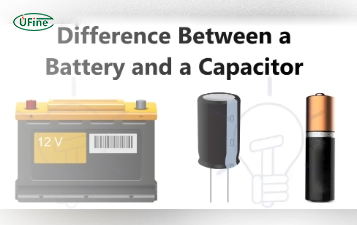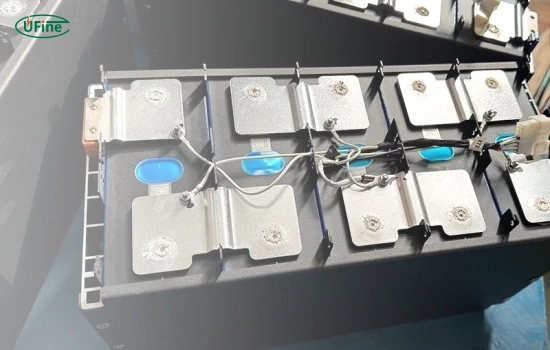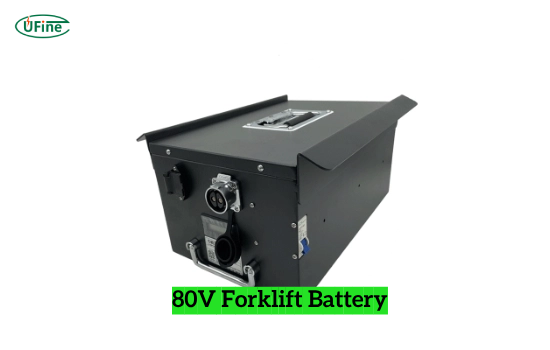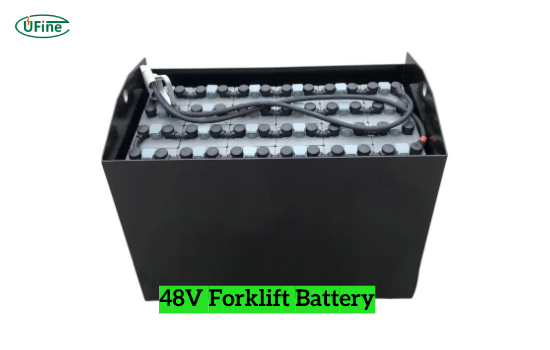
- Part 1. What are forklift batteries?
- Part 2. Why is voltage critical in forklift batteries?
- Part 3. What are the advantages of 80v forklift batteries?
- Part 4. What are the disadvantages of 80v forklift batteries?
- Part 5. What are the advantages of 48v forklift batteries?
- Part 6. What are the disadvantages of 48v forklift batteries?
- Part 7. How do you choose between 80v and 48v forklift batteries?
- Part 8. Maintenance considerations for forklift batteries
- Part 9. FAQs
The choice of battery can significantly impact performance, efficiency, and operational costs in industrial machinery, particularly forklifts. Among the various options available, 80-volt and 48-volt batteries are two of the most common types used in electric forklifts. Understanding the differences between these two battery systems is crucial for businesses looking to optimize their material handling operations. This article will explore the key differences, advantages, and disadvantages of 80v and 48v forklift batteries, helping you make an informed decision for your operations.
Part 1. What are forklift batteries?
Forklift batteries are rechargeable energy storage systems that power electric forklifts. They are typically lead-acid or lithium-ion batteries designed to provide the necessary voltage and current to operate the forklift’s electric motors.
Key Components of Forklift Batteries
- Lead Plates are the primary components that facilitate the chemical reaction needed to produce electricity.
- Electrolyte: A mixture of water and sulfuric acid that allows ions to flow between the plates.
- Battery Case: A durable casing that houses the individual cells and protects them from external damage.
How Do Forklift Batteries Work?
When the forklift operates, the battery releases stored energy through a chemical reaction between the lead plates and the electrolyte. This reaction generates electrons, which flow through the forklift’s electrical system, powering the motors and other components.
Part 2. Why is voltage critical in forklift batteries?
Voltage is a critical factor in determining a forklift’s performance. It affects:
- Power Output: Higher voltage systems can deliver more power, enabling the forklift to handle heavier loads and operate more efficiently.
- Cycle Time: Higher voltage batteries often allow for more extended operational periods between charges, reducing downtime.
- Charging Time: Higher voltage systems typically charge faster, which can improve overall operational efficiency.
Part 3. What are the advantages of 80v forklift batteries?
80v forklift batteries are increasingly popular in industrial settings due to their numerous benefits:
- Increased Power: The higher voltage allows for greater power output, making it suitable for heavy-duty applications.
- Efficiency: 80v systems are often more efficient, providing longer run times and faster charging capabilities.
- Reduced Weight: Designers can make higher-voltage batteries lighter than lower-voltage ones, improving the forklift’s overall efficiency.
- Better Performance: They are particularly effective in environments where forklifts, such as warehouses or distribution centers, are used for extended periods.
Part 4. What are the disadvantages of 80v forklift batteries?
While 80v batteries offer several advantages, they also come with some drawbacks:
- Higher Initial Cost: The upfront investment for 80v batteries is generally higher than for 48v systems.
- Compatibility Issues: Manufacturers do not design all forklifts to handle 80v batteries, limiting your options for replacement or upgrades.
- Complexity: The charging systems and maintenance requirements for 80v batteries can be more complex, requiring specialized knowledge and equipment.
Part 5. What are the advantages of 48v forklift batteries?
48v forklift batteries have been a standard in the industry for many years and offer several benefits:
- Lower Cost: They are usually less expensive than 80v batteries, making them a more budget-friendly option for many businesses.
- Widespread Compatibility: Designers create many forklifts to operate with 48v batteries, making it easier and more accessible to find replacements.
- Simplicity: The charging and maintenance processes for 48v batteries are generally more straightforward, requiring less specialized knowledge.
Part 6. What are the disadvantages of 48v forklift batteries?
Despite their advantages, 48v batteries also have limitations:
- Reduced Power Output: They may not provide enough power for heavy-duty applications, limiting their effectiveness in demanding environments.
- Shorter Run Times: Compared to 80v systems, 48v batteries may require more frequent charging, leading to increased downtime.
- Heavier Design: 48v batteries can be bulkier and heavier in some cases, which may affect the forklift’s overall efficiency.
Part 7. How do you choose between 80v and 48v forklift batteries?
When deciding between 80v and 48v forklift batteries, consider the following factors:
- Application Requirements: Assess the weight of loads and the intensity of usage. 80v may be more suitable for heavy-duty applications.
- Budget Constraints: Determine your budget for battery purchase and maintenance. If cost is a primary concern, 48v batteries may be the better option.
- Forklift Compatibility: Ensure the chosen battery voltage is compatible with your current models.
- Operational Efficiency: Evaluate how battery choice will impact your overall operational efficiency, including run times and charging needs.
Part 8. Maintenance considerations for forklift batteries
Regardless of the voltage, proper maintenance is essential for maximizing the lifespan and performance of forklift batteries. Here are some basic maintenance tips:
- Regular Inspections: Check for wear or damage on the battery casing and terminals.
- Water Levels: For lead-acid batteries, maintain water levels to prevent damage.
- Charging Practices: Follow recommended charging practices to avoid overcharging or undercharging, which can shorten battery life.
- Cleanliness: Clean the battery terminals to ensure good electrical connections and prevent corrosion.
Part 9. FAQs
-
What is the lifespan of a forklift battery?
The lifespan of a forklift battery can vary significantly based on usage and maintenance practices. Generally, lead-acid batteries last between 3 to 5 years, while lithium-ion batteries can last up to 10 years or more. -
How often should I charge my forklift battery?
Charging frequency depends on usage. To prolong the battery’s lifespan, charge it after each shift or when it reaches about 20% discharge. -
Can I use a 48v battery in an 80v forklift?
Using a 48v battery in an 80v forklift with proper voltage conversion equipment is recommended, as it can lead to an inadequate power supply and potential damage. -
What are the signs that a forklift battery needs replacement?
Common signs include reduced run time, difficulty holding a charge, swelling or leaking, and visible corrosion on terminals. -
Are there safety precautions I should take when handling forklift batteries?
Always wear protective gear, including gloves and goggles, and ensure proper ventilation when charging batteries to avoid inhaling harmful gases.
Related Tags:
More Articles

Capacitor vs Battery: What is the Difference?
Capacitor vs battery explained in detail. Learn the difference between capacitor and battery in energy storage, charging speed, lifespan, and real applications.
18650 Battery vs AA: Which Is Better for Your Device?
Compare 18650 vs AA batteries in capacity, voltage, rechargeability, and applications. Learn which battery type fits high-drain or everyday devices.
What is the Difference Between Battery Cell, Battery Control Module, and Battery Pack?
Compare battery cells, modules, and packs. Learn functions, design differences, control modules, and selection tips for EV, ESS, and industrial use.
How to Prevent LiPo Battery Explosion?
Can LiPo batteries explode or catch fire? Learn key causes of LiPo battery fires and proven charging, storage, and handling tips to reduce explosion risk.
Aluminium Ion Battery vs Lithium-Ion: A Detailed Comparison
Compare aluminium ion battery vs lithium-ion battery in energy density, charging speed, safety, cost, and uses. A practical guide for engineers and buyers.





